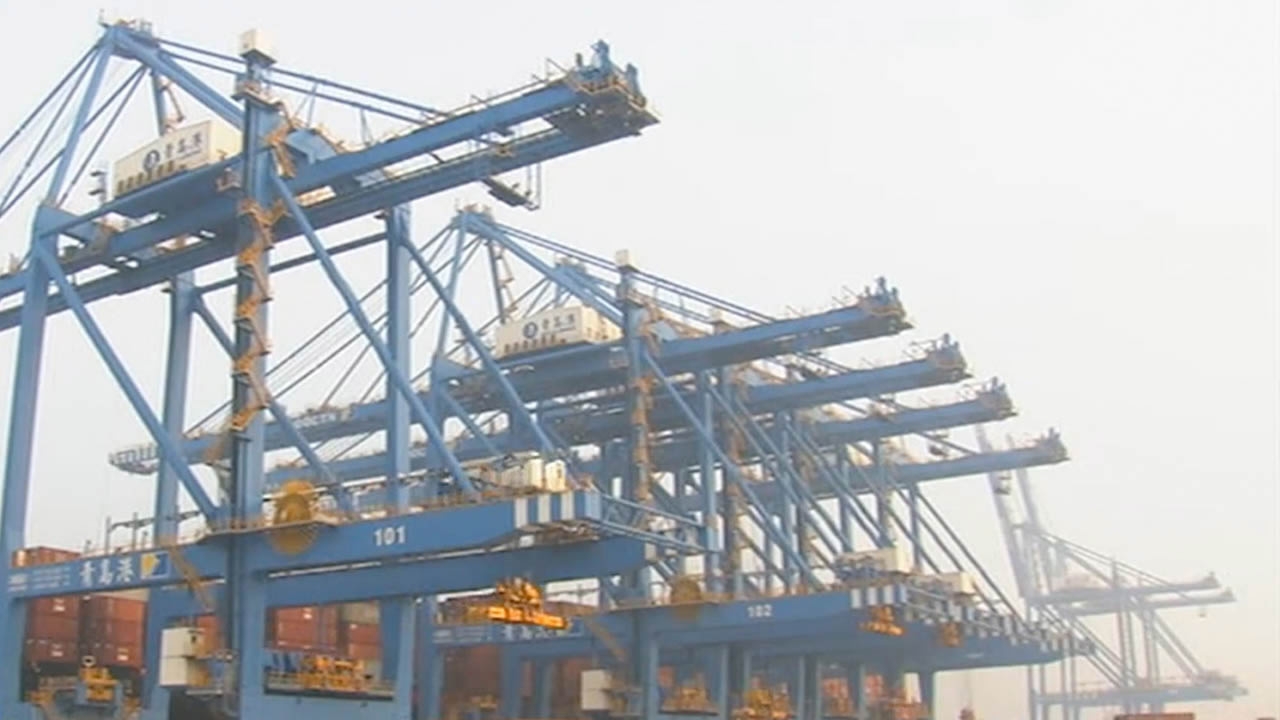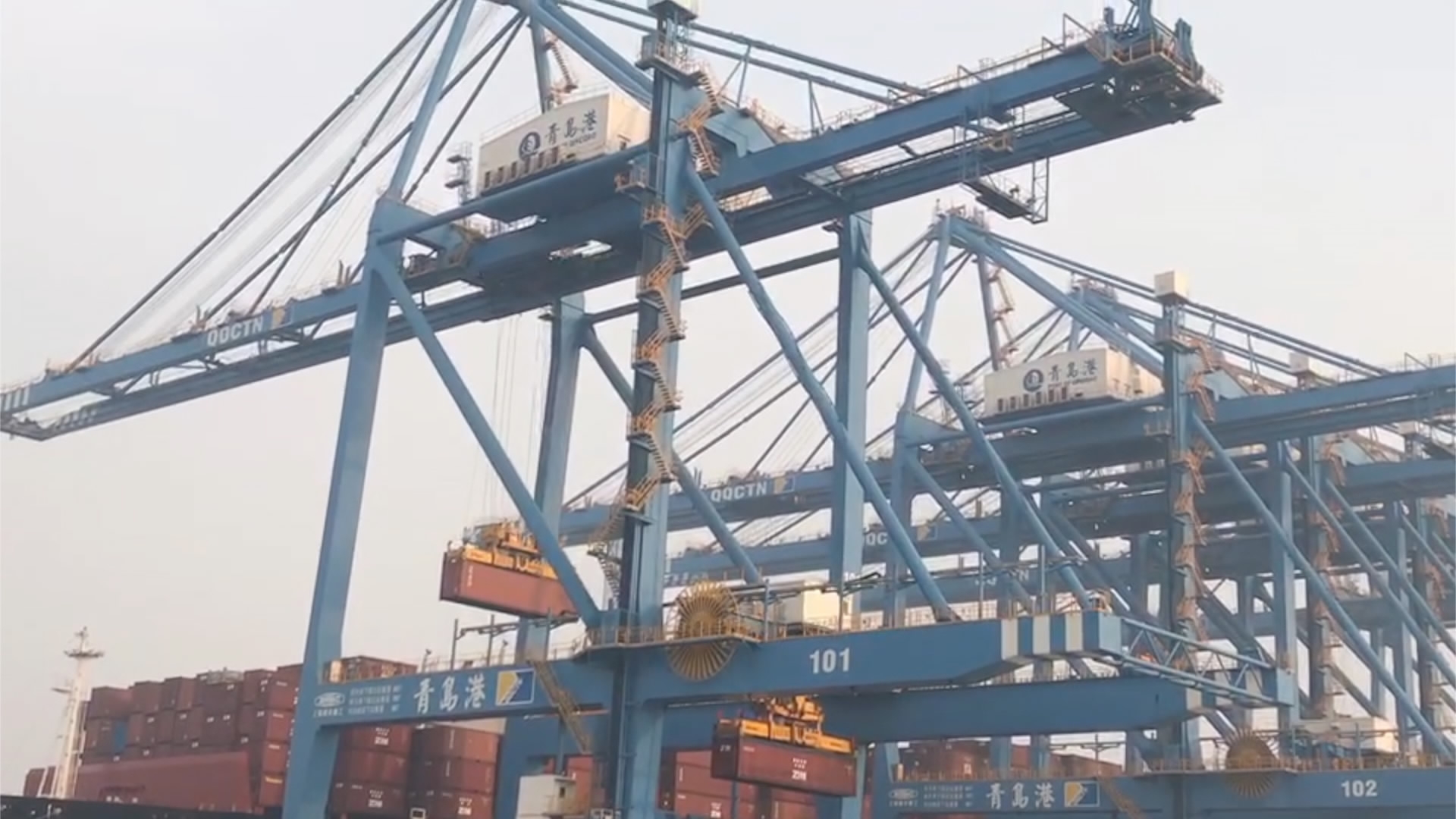
Tech & Sci
15:32, 03-Dec-2017
Asia's first fully-automated port sets new record
By Cui Hui'ao

When it comes port turnaround times, it is hard to beat Qingdao in east China, thanks to technological breakthroughs.
Asia’s first fully-automated port there can process more than 30 containers per hour. In fact, the speed it takes to unload a cargo ship is now the fastest in the world, officials say.

The unmanned port in Qingdao can operate in complete darkness. /CGTN Photo
The unmanned port in Qingdao can operate in complete darkness. /CGTN Photo
New technologies are behind this record-breaking operational efficiency. Unlike manual terminals, Qingdao New Qianwan Automated Container Terminal is fully automated, meaning you won’t see any workers on site. It can operate at night, even in complete darkness. All of which is thankful to what they call the “super brain.”
Zhang Liangang, the terminal's general manager, explained that it’s essentially a large computing system that is able to calculate, process and make optimal decisions based on the massive data collected through the program.
For example, more than 20,000 transponders are buried underground, generating data on locations of each automatic guided vehicle (AGV) and helping the program to control the routes and tasks of the AGVs from afar.

There are 30 AGVs operating at Qingdao. They are completely unmanned, taking containers automatically to the designated area. This is something you might expect to see in a sci-fi film. But technologies including artificial intelligence have now made it possible in real life.
As vessels become larger, demands for greater operation efficiency have never been higher.
As Mark Wells, vice president of Navis Collaboration Center said, “The ocean carriers, they are focused on minimizing their time in port. Think about it like a Formula One race where they come in to change the tires and then head out again. It’s all about speed.”
The Qingdao port is now aiming even higher. “We are working to make our system smarter, hopefully within the next year we could take our productivity to the next level, reaching an operation efficiency of handling 40 containers per hour,” Zhang said.

The next goal for the Qingdao port is to handle 40 containers per hour. /CGTN Photo
The next goal for the Qingdao port is to handle 40 containers per hour. /CGTN Photo
However, one expert points out that the smart port initiative of Qingdao needs to go hand-in-hand with traditional supply chains and industries.
Liu Shuguang, deputy dean of School of Economics from the Ocean University of China, said, "What’s lacking at the moment is the headquarters economy. There needs to be a strategic transformation of the city of Qingdao in attracting foreign direct investment, financial industries clustering, talent agglomeration, as well as global level value chain governance."
In that way, Liu said the integration of the regional economy will benefit the Qingdao port in the long run, making it one of the busiest in the world.

SITEMAP
Copyright © 2018 CGTN. Beijing ICP prepared NO.16065310-3
Copyright © 2018 CGTN. Beijing ICP prepared NO.16065310-3